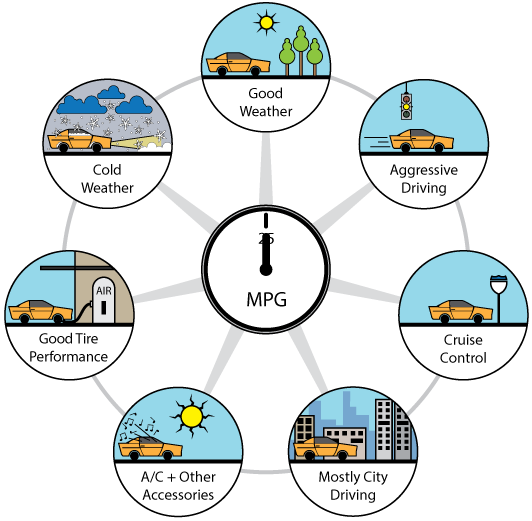Turning on the AC in cars is helpful when it is extremely hot outside, and the services provided by these cars are needed. However, one thing that should be noted is that the utilization of the AC does have some effects, especially on the fuel economy. Here is a breakdown of how your car’s AC affects fuel consumption and some ways to reduce the consequences.
Effects of AC on Fuel Economy
AC operation in car can still be very much influential on the fuel consumption of that car. The reason is that when you are using the AC it generally creates more load on the engine and due to that the fuel consumption increases too. The extent of this impact can vary depending on several factors:
1. Make and model of Car and type of the engine.
There are differences in all aspects of the car especially in the engine and the AC system. Thus, older models are most sensitive to the decrease in mileage, especially when the AC is used: This is due to the late-generation engines in most cars performing a relatively poor job in handling this additional demand from the AC.
2. External Temperature, Affects Fuel Efficiency
External environment conditions are of paramount importance here, namely the temperature outside the building. When the weather is very hot, the air conditioning unit in the car draws more power to cool the interior thus using more fuel. Anything that requires energy will require more energy the higher the temperatures of the car interior as compared to the exterior environment.
3. AC Usage Habits
Knowing how the need for AC can also affect mileage is also a useful thing to start with. Low setting of the AC and/or frequently switching on and off of the AC also contribute towards the excessive fuel consumption. The AC should also be set at a moderate level and maintained at this state to ensure that it does not affect the fuel efficiency.
4. Window Openings
Another factor that pertains to the use of the vehicle involves using the window while driving since this too impacts on the AC of the vehicle. When crossing air with opened windows, the AC has a considerable load, and as one can imagine, there will be a decrease in mileage. Regarding the fuel efficiency, it is advisable to close the windows while operating the AC.
5. Driving Conditions
Stops and starts are frequent on city roads, and hence, driving in such areas puts much pressure on engines, and this will reduce fuel efficiency even further. Staying with the subject of the effect of the AC on mileage, the results indicate that this is worse under conditions of Stopped or Slow Moving traffic as opposed to High Speed traffic.
Measures to Reduce Influence of AC on Mileage
1. Open Windows When Feasible
In case the climate outside is not too hot, these windows can remain opened as an alternative to the use of the AC. This can help to minimize the levels of stress imposed to the engine and thus increasing efficiency of the fuel used.
2. Adjust the thermostat of the AC to Moderate Temperature
Do not set the thermostat of the AC too low. Moderation will be conducive for you without pressurizing the engine much, and thus keeping you warm in the process.
3. Avoid Frequent AC Adjustments
Fluently switching between the power mode with the button of the AC can be unhealthy for the engine. One should also attempt to set a stable temperature of the property in order to reduce the impact on the consumption of fuels.
4. Regular Car Maintenance
To get your car functioning at optimum, the engine and the AC need to be serviced frequently. This way, the engine performs optimally and Costs such as fuel expenses may be reduced.
conclusion
In conclusion, while it is recommended to switch on your car’s air conditioner especially during hot weather, this has some effects on fuel consumption. Thus, knowing how many factors affect mileage and observing the tips above, one can have a cooler ride and do it without negatively influencing the car’s fuel consumption.
